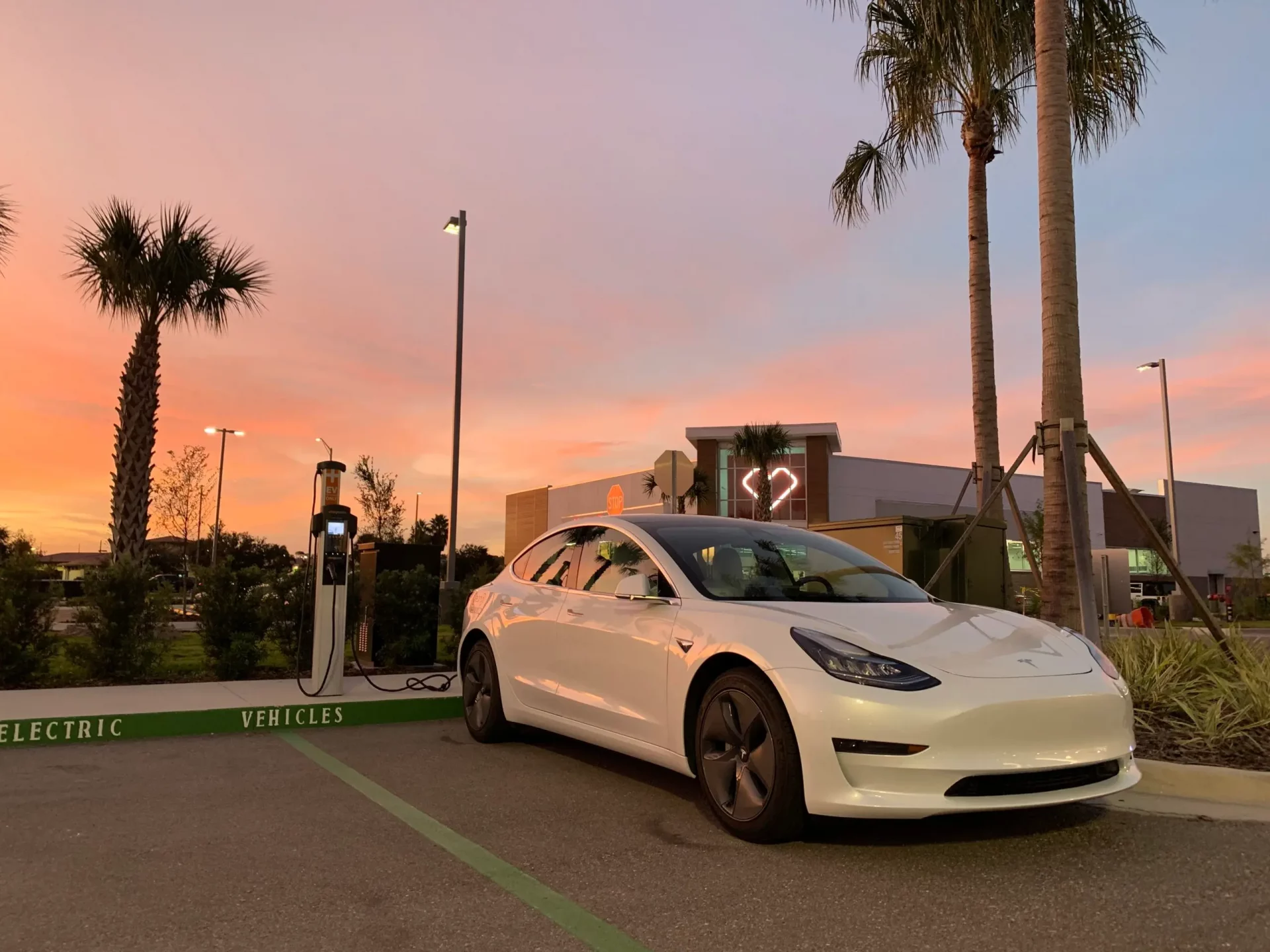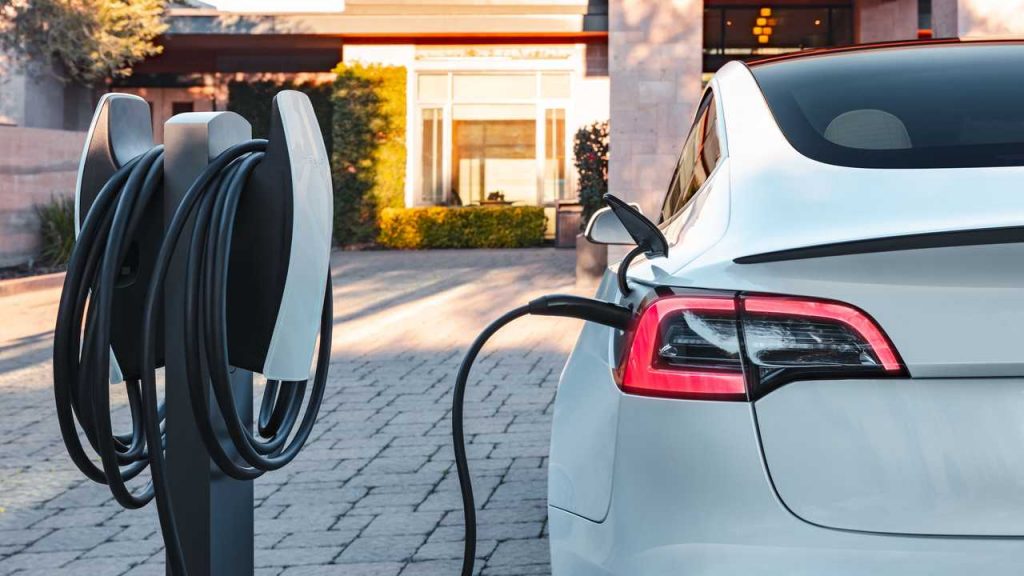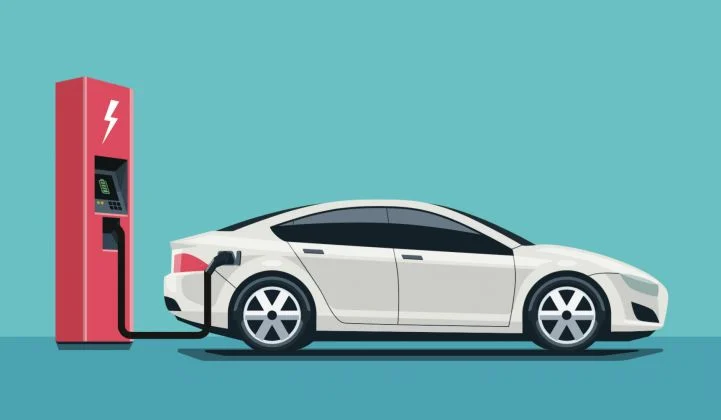What Are The Disadvantages Of Electric Cars?
By Slyng Team
Updated Feb 18, 2024

Electric cars have been increasing in popularity for a few years now, but are they really worth the hype? In this article, you’ll learn about the advantages and disadvantages of electric vehicles so you can decide whether it’s the right choice for you.
Table of Contents
What Is An Electric Car?
Compared to a gas-powered car that burns fossil fuels to generate power, electric cars use electricity to generate energy.
As a result, electric cars do not emit exhaustion from the tailpipe. Also, they do not have the typical liquid fuel components of gas-powered cars, such as fuel pumps, fuel lines, or fuel tanks. Instead, electric cars use a large traction battery pack to provide power to the electric motor. The average mileage/battery life for a fully charged electric car is around 181 miles.
Key Components Of An All-Electric Car
- Battery (all-electric auxiliary): Provides electricity to power vehicle accessories
- Charge port: Connects the traction battery packs to an external power supply
- DC/DC converter: Converts higher-voltage DC power from the traction battery packs to the lower-voltage DC power
- Electric traction motor: Drives the wheels of an electric car
- Onboard charger: Converts incoming AC electricity to DC power to charge the traction battery. It also monitors the status of the battery such as voltage, current, temperature, and state of charge while charging the pack.
- Power electronics controller: Manage electrical energy flow being delivered to the battery. It also controls the speed of the motor and the torque production
- Thermal system (cooling): Maintains the operating temperature range of the engine, electric motor, power electronics, and other components
- Traction battery pack: Stores the electricity needed by the electric traction motor
- Transmission (electric): Transfers mechanical power to the electric traction motor to drive the wheels

Advantages Of Electric Cars
With the current progress of electric cars, we can say that EVs provide several advantages. The help of modern-day technology made them a popular choice among car enthusiasts.
No Gas Required
You do not need to worry about fuel costs and gasoline rate hikes. You use electricity to generate power with an electric car, which is far cheaper than gasoline. You can lower your recharging costs and carbon footprint even further – simply install solar panels so you have renewable energy sources.
Savings & Incentives
The government provides incentives to consumers who go green. An electric car can be a great way to earn some money back while having a reliable means of transportation.
More Convenient
Many think that having an electric car is high maintenance, especially when you have to take charging stations into consideration. On the contrary, driving an EV is actually very convenient and low maintenance. You can recharge anywhere as long as there is a socket.
No Emissions
EVs do not emit toxic gasses or smoke that can harm the environment because they are powered by electricity. Because of this, an electric car has less environmental impact, which means you can reduce your carbon footprint and do your part to help the environment.
Technological Advancements
With its exponential increase in popularity in recent years, you can expect that there will be more developments and options for electric cars in the near future.
Safe To Drive
All electric cars undergo the same fitness and testing procedures as gasoline-powered cars. However, EVs have a lower center of gravity, making them more stable and safer to use. It also has a few safety features that cannot be found in a gasoline-powered car.
In an accident, electric cars cut the electric supply from the battery which will automatically stop the vehicle, preventing more severe injuries. Second, EVs are less likely to catch fire due to the absence of any combustible fuel or gas. Lastly, EVs have regenerative braking, which immediately decelerates or halts the vehicle and converts some of that “wasted” energy into power – making EVs safer and recharging your battery at the same time.
Reduced Noise Pollution
Electric motors provide a smooth drive with higher acceleration without any noise pollution, making them quieter than cars with a gasoline engine.
Cost-Effective
Electric-powered engines have fewer parts and require less maintenance than internal combustion engines, making EVs more cost-efficient in terms of repairs.
Also, the mass production of batteries and available tax incentives lowers the overall cost of owning an EV, making it more cost-effective. Lastly, a lithium-ion battery could last up to 10 years, compared to 5 years for gas car batteries. This means that you don’t have to spend on battery replacements nearly as often with an EV.

Electric Car Disadvantages
Buying an electric vehicle is a significant investment, which is why it’s important to weigh its cons. Below are a few to consider:
Fewer Recharge Points
Compared to the wide availability of gas stations, charging stations for electric cars are still few and far between. If you do not have a charging point at home, you might have a hard time finding one, especially in rural or suburban areas. If not, ensure to carry charging station maps for reference until EV charging stations are more available.
Another thing to note is that places that experience acute power shortages are not suitable for electric cars for the primary reason EVs consume electricity to function. Therefore, having an electric vehicle may hamper your daily electric usage.
Longer Recharge Time
Compared to the couple of minutes it takes to fill a fuel tank, it takes about 4-6 hours to charge an electric car fully.
Expensive Costs
While electric vehicles can have low maintenance costs, there are other costs to consider. For starters, it is a steep initial investment – even affordable brands for EVs start at $30,000 to $40,000. Also, electric vehicles may not have fuel, but they need electricity – EV owners must budget for the added cost of recharging in their monthly electricity bills.
Short Driving Range and Speed
Most electric cars can go 50-100 miles before you need to recharge. Most electric-powered vehicles cannot do long drives as they are limited by range and speed. However, with improving battery technology and more recharging stations, this problem is expected to improve in the future.
Fewer Choices
If you love to customize your car. In that case, having an electric vehicle can be a disadvantage as they have fewer options for aesthetics and customization. Also, most EVs available today are small and offer only two-seater layouts. If you have a family, electric cars may be uncomfortable at best and impractical at worst.
Too Quiet For Disabled People
EVs are generally silent cars that do not produce much sound. While many drivers prefer silent vehicles, this can be a problem for blind or partially sighted pedestrians. Blind or partially sighted people might not hear the vehicle when crossing the street, leading to accidents or even death. Many suggest adding artificial sound generators to address this issue.
Is An Electric Car Right For You?
Electric cars are not for everyone. In many cases, the advantages of EVs outweigh the disadvantages.
Although there is still a limited number of charging stations, EVs are an excellent cost-effective and eco-friendly alternative for car users. Plus, while EVs have higher initial costs, they are more affordable to run and maintain in the long run compared to gas vehicles.
What Are the Disadvantages of Electric Cars?
There are some disadvantages to electric-powered vehicles compared to gasoline-powered cars, but their advantages are significant enough to outweigh the cons. In the long run, EVs cost less to drive and offer big fuel cost savings and maintenance service – if these are your biggest considerations, then an EV may be right for you.
